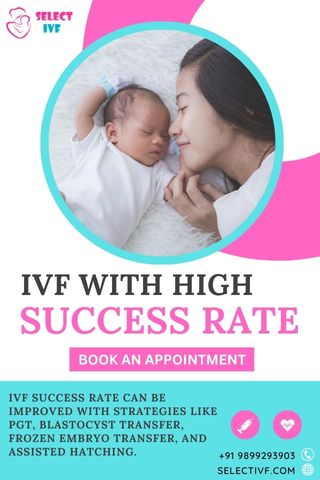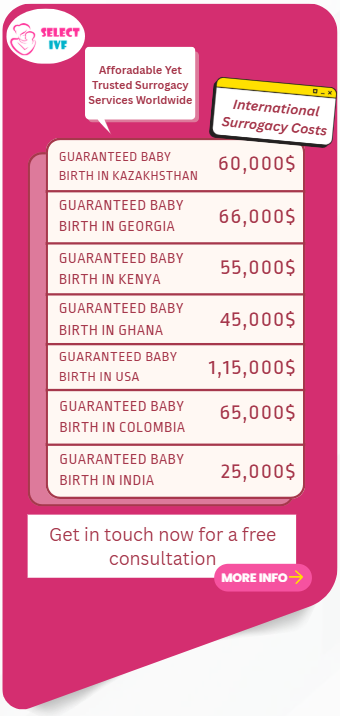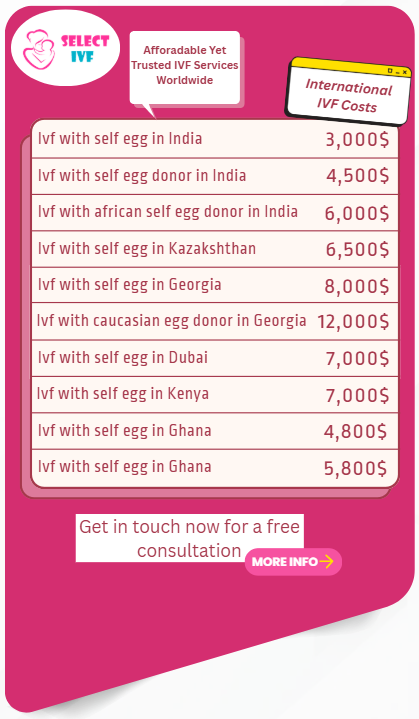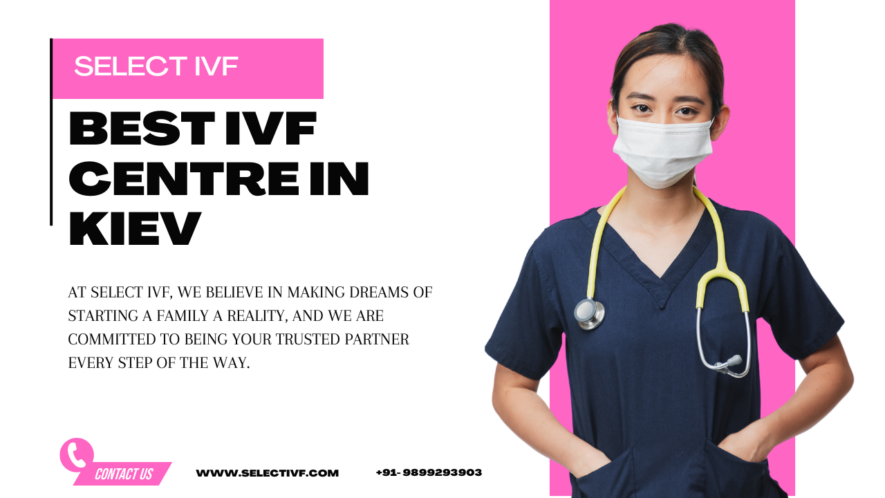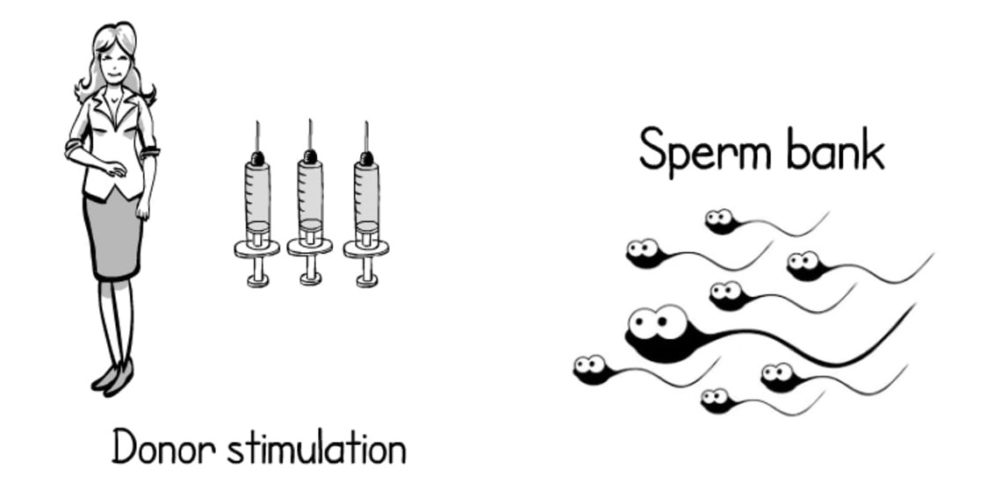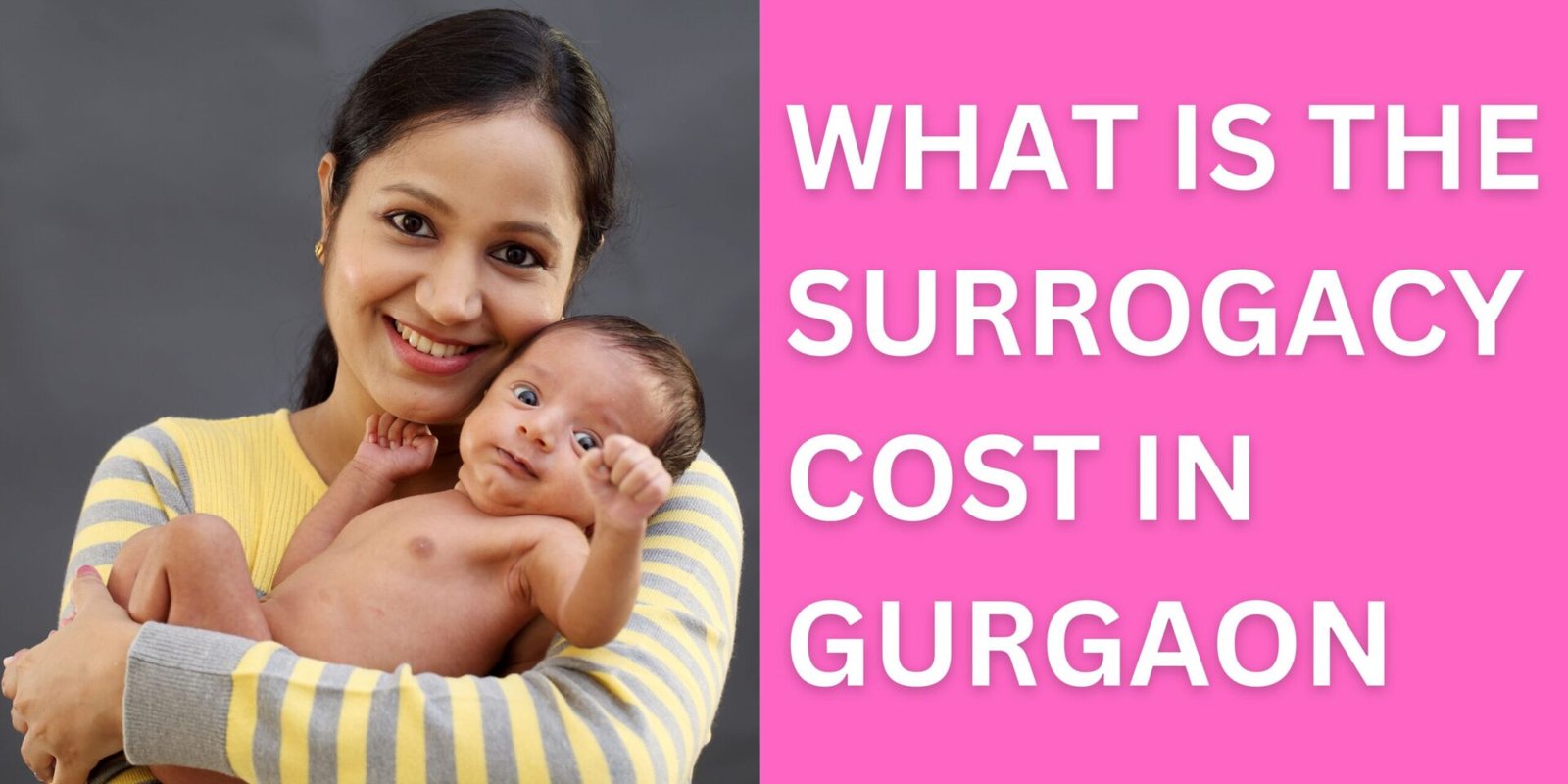Egg Donation
Egg donation is a form of assisted reproductive technology (ART) where a woman donates her eggs (oocytes) to help another person conceive a child. This technique is often used in IVF (In Vitro Fertilization) treatments and is especially helpful for individuals or couples who are unable to conceive due to poor egg quality, age-related infertility, or genetic concerns. In recent years, egg donation has gained widespread popularity as it opens new possibilities for parenthood, especially for women with premature ovarian failure, same-sex male couples, and single intended fathers.
In this detailed guide, we will explain what egg donation is, how the process works, who can benefit from it, the criteria for egg donors, how to access donor profiles, and much more. Whether you are a potential recipient or someone considering egg donation, this article covers everything you need to know in simple terms.
Why should you trust SELECT IVF for Egg Donation?
- First-stage top counselling sessions
- Premium services and processes
- Highly competent specialists for Egg Donation
- Contact us Email ID: info@selectivf.com
- Call us: +91 – 8447592299
Understanding Egg Donation
Egg donation is a medical process in which a healthy, fertile woman donates her eggs to be fertilized with sperm in a lab. The resulting embryos are then implanted into the uterus of the intended mother or a gestational surrogate. The donor may be anonymous or known to the intended parents.
This process is carefully regulated and involves legal, ethical, and medical considerations. Egg donors typically undergo physical screening, psychological evaluations, and hormone treatments before eggs are retrieved. The ultimate goal is to achieve a successful pregnancy for the intended parents.
Why Egg Donation is Needed
Egg donation is often a crucial step for many individuals and couples in their journey toward parenthood. There are several medical, biological, and situational reasons why someone may need to rely on donor eggs to conceive a child:
- Age-Related Fertility Decline
As women age, particularly after the age of 35, the quality and quantity of their eggs begin to decline significantly. This natural biological process can reduce the chances of successful fertilization and increase the risk of chromosomal abnormalities in embryos. For women in their late 30s or 40s who wish to conceive, egg donation from a younger, healthy donor offers a higher chance of success. - Premature Ovarian Failure (POF)
This condition occurs when a woman’s ovaries stop functioning normally before the age of 40. POF leads to reduced hormone production and little to no egg release, making natural conception nearly impossible. Egg donation provides these women with a viable opportunity to carry a pregnancy. - Genetic Disorders
Some women may carry inherited genetic diseases that they do not wish to pass on to their children. In such cases, using a donor egg from a genetically healthy woman can help ensure the child does not inherit these conditions. - Failed IVF Cycles
Couples who have gone through multiple IVF cycles without success may face issues with egg quality. Egg donation gives them a fresh opportunity using eggs that are more viable and healthy, improving the chances of implantation and pregnancy. - Same-Sex Male Couples
Gay couples who wish to have a biological child require both an egg donor and a gestational surrogate. The donated eggs are fertilized using one partner’s sperm and then implanted into a surrogate. - Single Men
Like same-sex male couples, single men looking to become fathers need both an egg donor and a surrogate. Egg donation allows them to have a biological connection to their child, fulfilling their dream of parenthood.
Who Can Be an Egg Donor?
Egg donors must meet certain medical and personal criteria to ensure they are healthy and suitable for donation:
- Age between 21 and 32
- Physically and mentally healthy
- Non-smoker and non-drug user
- Healthy BMI
- No genetic disorders or serious medical history
- Willing to undergo medical and psychological screening
Donors must also be committed to the entire process, including taking hormone injections and attending multiple clinic visits.
The Egg Donation Process
Egg donation is a carefully controlled medical procedure that requires multiple stages to ensure the safety of the donor and the success of the IVF cycle for the recipient. Here is an overview of the typical steps involved in the egg donation process:
1. Application and Screening
The journey begins with potential donors filling out a detailed application form that covers their medical history, lifestyle, and family background. This is followed by comprehensive medical screening, including blood tests, ultrasounds, and genetic testing, to ensure the donor is healthy and free from communicable or hereditary diseases. Psychological evaluation is also conducted to assess the donor’s emotional readiness and to provide counseling about the process and implications of donation.
2. Legal Agreement
Once the donor is approved, both the donor and the recipient (or intended parents) enter into a legal contract. This agreement outlines the rights, responsibilities, confidentiality, and compensation details (if applicable). It protects all parties involved and clarifies expectations related to anonymity, future contact, and parental rights.
3. Hormonal Stimulation
To maximize the number of eggs retrieved, donors undergo controlled ovarian hyperstimulation (COH) using fertility medications. These hormones stimulate the ovaries to develop multiple mature follicles instead of the single egg normally released each cycle. The process typically lasts around 10 to 14 days.
4. Monitoring
Throughout the stimulation phase, donors visit the clinic regularly for ultrasound scans and blood tests to monitor follicle growth and hormone levels. This careful tracking helps doctors determine the optimal time for egg retrieval.
5. Egg Retrieval
When the follicles reach maturity, a minor surgical procedure called transvaginal ultrasound-guided aspiration is performed under sedation. A thin needle collects eggs directly from the ovaries. The procedure is generally safe and takes about 20–30 minutes.
6. Fertilization and Embryo Transfer
The retrieved eggs are immediately taken to the laboratory, where they are fertilized with sperm from the recipient’s partner or donor. The resulting embryos
Types of Egg Donors
1. Anonymous Donors: Identities are kept confidential. Most common in India and worldwide. 2. Known Donors: Donors known to the recipient (family member or friend). 3. Altruistic Donors: Donate eggs without compensation, often for moral or compassionate reasons. 4. Commercial Donors: Receive compensation for their time and effort. Legal in some countries under regulation.
Advantages of Egg Donation
Egg donation offers a range of significant benefits to individuals and couples facing fertility challenges, helping them realize their dreams of parenthood. Here are some of the key advantages:
1. Increased Chance of Pregnancy
Using eggs from a young and healthy donor significantly improves the chances of successful fertilization and embryo development. Donor eggs typically come from women aged between 21 and 32, whose eggs are of high quality, resulting in higher pregnancy rates compared to using the recipient’s own eggs—especially in cases of advanced maternal age or diminished ovarian reserve.
2. Overcoming Infertility Causes
Egg donation is particularly beneficial for women with premature ovarian failure, poor egg quality, or genetic conditions that make natural conception or IVF challenging. It bypasses these issues by providing healthy, viable eggs, enabling pregnancy where it otherwise might be impossible.
3. Reduced Risk of Genetic Disorders
For couples with hereditary diseases or genetic mutations, using donor eggs can greatly reduce the risk of passing these conditions to their children. This helps in ensuring the birth of a healthy baby free from specific inherited disorders.
4. Option for Same-Sex Couples and Single Men
Egg donation allows same-sex male couples and single men to have a biological connection to their child, combined with the use of a gestational surrogate. This expands the possibilities of parenthood beyond traditional methods.
5. Access to Multiple Embryos
Often, multiple eggs are retrieved from a donor and fertilized, producing several embryos. This allows recipients to freeze unused embryos for future cycles, reducing the need for repeated egg retrievals and lowering treatment costs and physical demands.
6. Emotional and Psychological Benefits
For many recipients, egg donation brings hope and joy, helping to overcome the emotional pain of infertility. It opens a path to parenthood where other options may have failed, providing immense psychological relief and fulfillment.
Disadvantages and Considerations
Legal Aspects of Egg Donation
Legal frameworks vary by country. In India, altruistic egg donation is allowed, while commercial egg donation is restricted under ART Act 2021. Consent forms and anonymity agreements are required. It’s important for both parties to seek legal counsel before proceeding.
Egg Donor Profiles – What to Expect
Recipient parents usually receive access to detailed egg donor profiles which may include:
- Age and physical characteristics (height, weight, eye/hair color)
- Ethnicity and religion
- Education and profession
- Hobbies and interests
- Family medical history
- Personality traits
- Photos (childhood or adult, depending on policy)
Some clinics also include audio recordings, videos, or written essays by donors. This helps recipients make an informed decision.
How to Choose an Egg Donor
When selecting a donor, couples usually consider:
- Physical resemblance to the recipient or partner
- Medical history and genetic health
- Educational background
- Personality and lifestyle compatibility
- Availability and donor’s donation history
Clinics or agencies often guide you through the process with personalized support.
Fresh vs Frozen Donor Eggs
Fresh Eggs:
- Retrieved and fertilized immediately for a planned cycle
- Higher success rates but more coordination needed
Frozen Eggs:
- Already retrieved and cryopreserved
- Easier scheduling, slightly lower success rates
The choice depends on clinic availability, timing, and personal preference.
Success Rates with Donor Eggs
Success rates using donor eggs are generally high. On average:
- 50–75% chance of pregnancy per cycle
- Younger donors = higher success rates
- Embryo quality and recipient’s uterus health also matter
Costs Involved in Egg Donation (General Overview)
While actual figures vary by country and clinic, common cost components include:
- Donor screening and compensation (where allowed)
- IVF treatment
- Medications and monitoring
- Legal and administrative charges
Insurance typically does not cover egg donation, making financial planning essential.
Finding a Reputable Egg Donor Program
Look for programs or clinics that:
- Are certified and legally compliant
- Offer transparent processes and contracts
- Provide counseling and legal support
- Maintain confidentiality and donor privacy
You can also consult fertility tourism agencies or donor banks that offer access to Indian and international donor databases.
What should you consider when selecting the top IVF clinic in India?
We understand how difficult it becomes to select the best option for your infertility treatment but do not get tense, as one of the best options is going to be suggested to you where the patient collaborates with highly experienced and qualified doctors. The patient will find it comfortable as the staff will always stand by them, away from all the worries that come to their mind. We offer all types of infertility treatment, so contact us today! To start, consider the following factors while selecting a location:
i. The patient-focused assistance of the centre
ii. Professionals with extensive education and experience
iii. Infrastructure that is well-built for maximum comfort and happiness
iv. The entire medical staff treats you with respect
v. Assists you throughout the entire process from the beginning
vi. Offers transparent fees and processes
You have the option of choosing IVF for all of these! So, reach out to us at +91- 9899293903 | Email ID: info@www.selectivf.com
Why pick Select IVF for PGD in India?
Several numbers of infertile couples trusted the select IVF for their bright future. We care for every patient who has issues of infertility. We understand the phase of infertility, and that’s why we want to assist you in your dream of achieving parenthood. The prices of PGD treatment are reasonable at our centre, We ensure the highest success rates, we keep transparency and ensure personalised care and support to our patients. Get the treatment from our clinic and make your life stress-free by hearing the giggling of your newborn.
Here’s why Select IVF is best for PGD treatment in India:
- The high success rate of PGD and other infertility treatments
- Several infertility treatments for different infertility issues
- Use of cutting-edge technologies
- Equipped with highly skilled and educated doctors
- Affordable prices for PGD and other infertility treatments
- Ensures utmost comfort and support during the procedure
Conclusion
Egg donation is a powerful option for those struggling with infertility or looking to start a family through IVF. With careful planning, emotional support, and access to verified egg donor profiles, many individuals and couples have successfully achieved parenthood. Whether you’re an intended parent or considering becoming a donor, understanding the process deeply helps make informed, ethical, and confident decisions.
If you’re exploring egg donation, consult a trusted fertility clinic or agency to learn more and take your next step toward parenthood.r this process then plump for egg donation in India and hold your happiness in the form of a baby in your life permanently.
FAQs (Frequently Asked Questions)
Who can become an egg donor?
Generally, healthy women between the ages of 21 and 32 with no major medical or genetic issues can become egg donors. They undergo thorough medical and psychological screening before being approved.
Is egg donation safe for the donor?
Egg donation is considered safe when performed under medical supervision. However, donors may experience side effects from hormone stimulation, such as mood swings, bloating, or in rare cases, ovarian hyperstimulation syndrome (OHSS). The egg retrieval procedure is minimally invasive but carries small risks like infection or bleeding.
How long does the egg donation process take?
The entire process, from initial screening to egg retrieval, usually takes about 4 to 6 weeks. Hormonal stimulation lasts roughly 10 to 14 days, with monitoring throughout before the retrieval procedure.
Will the donor have any legal rights or responsibilities toward the child?
No. In most countries, egg donors have no parental rights or responsibilities once the donation is complete, especially if a legal agreement is signed. The intended parents hold full parental rights.
Can the recipient choose the donor?
Yes, many fertility clinics provide profiles of available donors including physical characteristics, education, interests, and medical history. Recipients can select a donor based on their preferences.
What are the chances of success with donor eggs?
Success rates with donor eggs are generally higher than with the recipient’s own eggs, especially for older women. Pregnancy rates can range from 50% to 70% per cycle, depending on various factors like the recipient’s health and clinic expertise.

